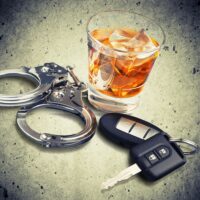What You Should Know About Field Sobriety Tests

Field sobriety tests (FSTs) are commonly used by law enforcement officers in Orange County and throughout the Hudson Valley to determine whether a driver is impaired. If you are pulled over under suspicion of driving under the influence (DUI) or driving while intoxicated (DWI), you may be asked to perform these tests. Understanding how these tests work, their reliability and your legal rights can be critical if you face DUI charges. See below for a discussion of this controversial law enforcement tool, and contact Dupée & Monroe, P.C., after a DWI arrest for immediate assistance from a skilled and experienced Goshen DWI/DWAI defense lawyer.
What Are Field Sobriety Tests?
Field sobriety tests are physical and cognitive exercises purportedly designed to assess a driver’s level of impairment. The National Highway Traffic Safety Administration (NHTSA) has approved three standardized field sobriety tests:
- Horizontal Gaze Nystagmus (HGN) Test – The officer will ask you to follow an object (such as a pen or flashlight) with your eyes. The officer looks for involuntary jerking movements, which may indicate impairment.
- Walk-and-Turn Test – You are instructed to walk heel-to-toe in a straight line for nine steps, turn, and walk back in the same manner. The officer watches for signs of imbalance, failure to follow instructions, or stopping mid-walk.
- One-Leg Stand Test – You must stand on one leg while counting aloud. If you sway, hop, or put your foot down, the officer may consider it a sign of impairment.
How Accurate Are Field Sobriety Tests?
While field sobriety tests are widely used, they are not foolproof. Even under ideal conditions, they are said to be only about 65-80% accurate in detecting impairment. Several factors can affect performance, including:
- Medical conditions, such as inner ear issues or neurological disorders
- Poor lighting or uneven road surfaces
- Nervousness or anxiety
- Fatigue or natural lack of coordination
- Improper instructions or bias from the officer
Can You Refuse to Take a Field Sobriety Test in New York?
Yes, in New York, you have the right to refuse field sobriety tests without automatic legal consequences. Unlike chemical tests (such as breath or blood tests), which carry penalties for refusal under the state’s implied consent law, declining an FST does not result in immediate license suspension or additional charges. However, refusal could lead to the officer arresting you based on other observations.
What Happens If You Fail a Field Sobriety Test?
If you fail an FST, the officer may use it as probable cause to arrest you for DUI/DWI. However, failing does not mean you are automatically guilty. Your defense attorney can challenge the results by questioning factors such as the officer’s administration of the test, external factors that may have affected your performance, and even whether there was probable cause for the stop and the test in the first place. Rather than make any statements to the police or plead guilty at an arraignment, ask to speak to a lawyer at your earliest opportunity.
How a DUI/DWI Attorney Can Help
If you have been arrested after a field sobriety test, it is crucial to contact a criminal defense attorney as soon as possible. At Dupée & Monroe, P.C., we have extensive experience defending individuals in Orange County and the Hudson Valley against DWI/DWAI charges. We can evaluate the circumstances of your arrest, challenge the validity of the tests, and work to protect your rights and driving privileges.
If you are facing DWI/DWAI charges in New York, contact us today for a free consultation to find out how we can help. The sooner you have legal representation, the better your chances of building a strong defense.
